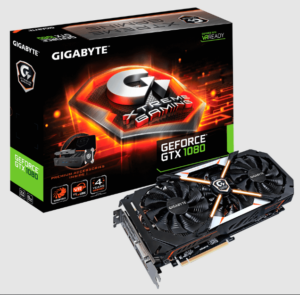The video game industry has always been a source of entertainment for millions of people around the world. However, like any other industry, it has seen its fair share of scandals and controversies over the years. In this article, we will review ten of the most iconic scandalous events in the history of the video game industry.
10. Merchants “collect” new generation consoles
In recent years, the release of new generation consoles from major video game companies like Sony, Microsoft, and Nintendo has become highly anticipated events in the gaming industry. However, with limited supply and high demand, some merchants have taken advantage of the situation by “collecting” new generation consoles and reselling them for exorbitant prices.
This practice of “collecting” new generation consoles is often referred to as scalping. Scalpers purchase large quantities of the consoles when they become available, often using bots to automate the process, and then resell them at a markup. This makes it difficult for consumers to purchase the consoles at their retail price, forcing them to pay much more than they would otherwise.
The practice of scalping is not illegal, but it has faced significant criticism from both consumers and industry insiders. Many consumers are frustrated with the high prices and limited availability of new generation consoles, and industry insiders worry that scalping could harm the long-term growth and health of the video game industry.

9. Xbox One launch event
The Xbox One launch event was widely regarded as a disappointment by the gaming community. Microsoft had spent years developing the console and building up excitement and anticipation leading up to its release, but the launch event itself failed to live up to expectations.
Another reason why the Xbox One launch event was disappointing was due to the lack of exclusive games that were announced for the console. While Microsoft had developed a number of first-party titles for the console, they were largely absent from the launch lineup. This led to a perception that the Xbox One was not as focused on gaming as its main competitor, the PlayStation 4.
8. The death of Adobe Flash Player
The death of Adobe Flash Player was a significant event in the history of the video game industry. Flash Player had been a popular tool for creating and playing online games and interactive content for many years, but its popularity began to decline as newer technologies emerged.
One of the main reasons why Flash Player fell out of favor was due to security concerns. The technology was notoriously vulnerable to malware and other forms of cyberattacks, which made it a liability for many companies and individuals. Additionally, the rise of mobile devices, which often did not support Flash Player, further contributed to its decline in popularity.

7. Cyberattack on Christmas 2014
The cyberattack on Christmas 2014 was a significant event in the history of the video game industry. The attack targeted both Microsoft’s Xbox Live and Sony’s PlayStation Network, causing widespread disruptions and frustrating many gamers who had received new consoles for the holidays.
The attack, which was carried out by a group calling themselves Lizard Squad, involved a distributed denial of service (DDoS) attack. This type of attack involves overwhelming a server with traffic in order to render it inaccessible to legitimate users. In this case, the attackers targeted the online gaming services of both Microsoft and Sony, making it difficult or impossible for gamers to connect and play games online.
6. NFT
One of the main applications of NFTs in the video game industry is for the creation and sale of in-game items and virtual assets. In the past, players could earn or purchase these items, but they did not truly own them. With the introduction of NFTs, however, players can now own and trade their in-game assets as digital collectibles. This has led to a new market for rare and unique virtual items, with some NFTs selling for millions of dollars.
However, the use of NFTs in the video game industry has also raised concerns about the environmental impact of blockchain technology. The energy consumption required to maintain the blockchain can be significant, and some have criticized the use of NFTs for promoting wasteful and unsustainable practices.
NFTs have also faced criticism for their potential to contribute to inequality in the gaming industry. The high prices of some NFTs can make them inaccessible to many players, creating a divide between those who can afford to purchase them and those who cannot. Additionally, the use of NFTs for in-game items and assets can create a pay-to-win environment, where players who can afford to purchase valuable NFTs have an unfair advantage over those who cannot.

5. Nintendo stops releasing a large number of games on the store
Nintendo has long been known for its iconic games and characters, such as Mario, Zelda, and Pokemon. However, in recent years, the company has made a controversial decision to stop releasing a large number of its games on the digital store for its consoles, such as the Nintendo Switch.
This decision has caused frustration among fans who want to play classic Nintendo games on the latest consoles, as well as independent game developers who are unable to release their own games on the platform. Some have speculated that Nintendo’s decision is due to a desire to maintain the value and exclusivity of its IP, while others suggest that it may be a strategic move to encourage players to purchase physical copies of games instead of digital ones.
4. The Elder Scrolls IV: Oblivivion’s Horse Armor DLC
The Elder Scrolls IV: Oblivion’s Horse Armor DLC is a controversial event in the history of the video game industry. The DLC was released in 2006 and was one of the first examples of a game offering cosmetic DLC, which allowed players to purchase virtual goods that did not affect gameplay.
The Horse Armor DLC was met with widespread criticism from both fans and industry professionals, who viewed it as a cynical cash grab. The DLC was priced at $2.50, which many felt was too expensive for a cosmetic item, especially considering that it was only available for a single horse in the game.
The backlash against the Horse Armor DLC was so strong that it became a symbol of the worst excesses of the video game industry. It has been cited as an example of how publishers can take advantage of their customers by offering overpriced and unnecessary DLC.

3. US Senate hearing on violent video games in 1993
The US Senate hearing on violent video games in 1993 was a significant event in the history of the video game industry. The hearing was called by Senator Joseph Lieberman in response to concerns about the potential effects of violent video games on children.
The hearing featured testimony from a number of industry experts, including representatives from the video game industry, child development experts, and critics of violent video games. The industry representatives argued that there was no evidence to suggest that violent video games caused real-world violence, while the critics argued that exposure to violent media could desensitize children to violence and lead to aggressive behavior.
The hearing resulted in the establishment of the Entertainment Software Rating Board (ESRB), which is responsible for assigning age and content ratings to video games. The ESRB was created as a voluntary industry self-regulatory body, and its ratings have become an industry standard for informing consumers about the content of video games.
2. PSN hack 2011
The PlayStation Network (PSN) hack of 2011 was a major event in the history of the video game industry. In April of 2011, hackers gained access to the PSN servers and stole personal information from millions of users, including names, addresses, email addresses, and credit card information.
The attack resulted in the suspension of the PSN service for several weeks while Sony worked to fix the security vulnerabilities that had allowed the hackers to gain access. During this time, gamers were unable to play online, access the PlayStation Store, or download updates for their games.
The PSN hack had a significant impact on Sony and the wider video game industry. It was one of the largest data breaches in history, and it exposed the vulnerabilities of online gaming networks and the personal information of millions of gamers.
Sony faced significant criticism for its handling of the hack, with many users feeling that the company had not done enough to protect their personal information. The company was also criticized for the slow and inadequate response to the breach, which left users without access to the PSN service for several weeks.
1. Bubble game market burst 1983-1985
The bubble game market burst of 1983-1985 was a significant event in the history of the video game industry. In the early 1980s, the video game industry experienced a period of rapid growth and expansion, with new companies entering the market and sales of home consoles and arcade machines reaching record levels.

However, the market soon became oversaturated with low-quality games, and consumers began to lose interest in video games. This led to a sharp decline in sales and the collapse of several major video game companies, including Atari, which had been a dominant force in the industry during the early 1980s.










